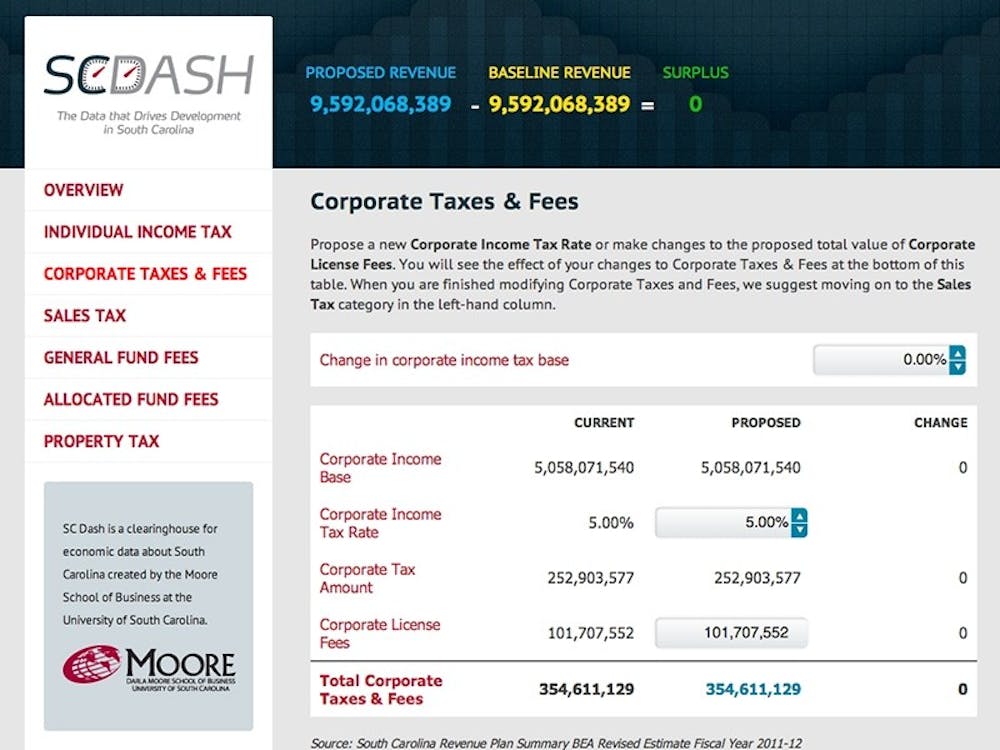Tax calculator helps policy makers assess impact of decisions
A new economic tool for South Carolina tax policy-makers was revealed Thursday by researchers from the Darla Moore School of Business.
Designed for government, business and community leaders, the new online S.C. Tax Tool allows users to calculate the consequences that potential changes in tax laws would have on the state’s revenue.
Moore School Dean Hildy Teegen said Thursday that the new tax calculator will allow decision-makers to “focus more on substance and less on the math.”
“I know for this community, it comes as no surprise to you that the question of tax policy in South Carolina is one that has gotten us the attention of many in our community,” Teegen said, speaking to a group of legislative leaders and their staff at the Statehouse Thursday. “And we recognize at the Moore School of Business that we have some specialized expertise that we can bring to bear in helping those in the policy community considering a variety of potential changes in our tax policy and our tax regulations.”
Moore School researchers Carolina Strobel and Patrick Philipoom spent about one year and between $30,000 and $40,000 in private donations to develop the model, according to Teegen.
The calculator displays baseline figures of current state tax revenue based on current taxation rates in a number of tax categories.
By manipulating proposed tax changes with the tool, users can immediately see the potential impact that the change will have on the amount of tax revenue collected by the state. The tool keeps a running track of proposed changes and impacts and allows for side-by-side comparison to the baseline figures.
“For the very first time, all of you that are interested in tax policy will be able to use an objective, unbiased, neutral tool that takes the hassle of the math out of your decision-making process,” Teegen said.
As an example, Teegen used the tool to demonstrate how a hypothetical decrease in the corporate tax rate from 5 percent to 4 percent would result in a $50 million negative implication for total state revenue collected from corporate taxes and fees.
Teegen also said the model does not advocate any particular kind of policy change; it is a neutral tool to help policy-makers understand better and more easily the impact of the choices they might make.
The baseline information will be updated every time new economic information is made available by the Department of Revenue or the Bureau of Economic advisers, Strobel said.
“We believe that this tool is not only robust, comprehensive and very up-to-date in terms of the underlying data, but also quite easy to use,” Teegen said.
South Carolina Comptroller General Richard Eckstrom was in attendance for the demonstration and said the tool would be useful in its design, if only policy-makers will choose to make use of it.
He also said that policy-makers at the state level can sometimes be too independent in their attitudes, and he said lawmakers should take advantage of this sort of expertise coming out of the university.
“We’re creating these experts, (so) use these experts,” Eckstrom said. “The more we involve experts that our higher (education) institutes are producing, the more likely it is that those experts stay in South Carolina. And we need people that can add quality to the state.”

